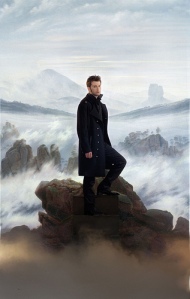There’s been a really interesting debate about Chinese art, and the current craze for it in the West, on Guardian Unlimited recently.
Jonathan Jones asks:
Isn’t it a bit rich that China, with its human rights record, is being so assiduously courted by so many British museums and galleries?
He suggests that ‘we’ are displaying a blindness towards the reality of the Chinese regime in our seeming obsession for all things Chinese. In my view this is only an extension of the attitude shown by the business world in recent years; dazzled by the prospect of securing a share of a vast, largely untapped consumer base, coupled with the pull of a seemingly endless supply of cheap unregulated labour, makes it easy to cast aside any lingering concerns about human rights. Personally, I feel it is a ‘good thing’ if recent events in Tibet and culturally-Tibetan areas of China cause people in the West to stop and think, although I doubt, given how inextricably linked the Chinese economic and labour market now is with the Western economy, individual ethical concerns would have much impact as a cause for good in China (and I strongly believe that real, permanent change can only occur from within.)
Of course the Chinese people are not to blame; they are equally subject to the vicissitudes of their government. And many of the artists working within China and attracting enormous attention from the Western art world are using their art as subtle commentary on the regime and the official policy of capitalism without democracy, often to the detriment of their careers and personal lives. So, equally, it is difficult to argue that their voices should be silenced because of wider concerns about the conduct of the CCP. And this is exactly the argument taken up by Eliza Gluckman in her response to Jones:
Distancing ourselves from Chinese culture will hurt only those labouring with imagination under censorship – there’s more than terracotta at stake
I guess what would be problematic is if China began to assert its influence over British museums and cultural institutions. And given the track record of the Chinese authorities, I wouldn’t be surprised if they didn’t apply strict conditions with respect to the interpretation of particular objects as a component of any loan or joint exhibition agreements. Indeed reports at the time accused China of trying to censor the Museum für Asiatische Kunst’s recent exhibition of Tibetan artefacts.

